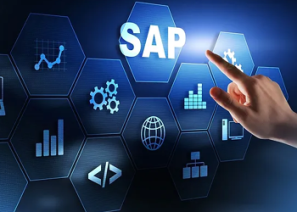SAP PLC Certification: Learn Advanced Process Management
SAP PLC Training || SAP PLC certification Training || SAP PLC Online training || SAP PLC self-paced training || SAP PLC Instructor-Led training
Key Features of Training:
- 30 Hrs Instructor-led Training
- Mock Interview Session
- Project Work & Exercises
- Flexible Schedule
- 24 x 7 Lifetime Support & Access
- Certification and Job Assistance
SAP PLC(Product Lifecycle Costing):
SAP Product Lifecycle Costing (PLC) is a software solution developed by SAP, a leading provider of enterprise software. It is designed to help businesses calculate and manage the total cost of a product throughout its entire lifecycle, from the initial concept and design phases to production, distribution, and eventual retirement or disposal. PLC enables organizations to gain a comprehensive understanding of the cost structure associated with their products, including direct and indirect costs, materials, labor, overhead, and other expenses. It provides tools for estimating future costs, conducting cost simulations, and analyzing cost breakdowns. This information is invaluable for making informed decisions about pricing, product profitability, and resource allocation.
Prerequisites: Who can attend SAP PLC Training?
- Basic SAP Knowledge
- Job Role
- Educational Background
- Experience
- Good Communication Skills
Responsibilities of SAP PLC Consultant:
- Requirements Gathering
- Solution Design
- System Configuration
- Data Migration
- Integration
Course Benefits:
- Job opportunities
- Promotion opportunities (Salary Hike)
- Increased productivity
- Improved decision-making
- Gain in-demand skills
What is the future of SAP PLC Consultant?
- Digital Transformation
- Cloud Adoption
- AI and Automation
- IoT Integration
- Sustainability and Compliance
The fee for SAP PLC(Product Lifecycle Costing) training can vary depending on several factors such as the location, duration of the course, training format, and level of expertise. SAP offers various training options for PLC, including instructor-led courses, e-learning courses, and virtual live classrooms.
For More details you can Register Sign Up
SAP PLC(Product Lifecycle Costing) Certification FAQ's:
1. What is SAP PLC Certification?
SAP PLC Certification is a professional certification program offered by SAP that validates your expertise in using SAP Product Lifecycle Costing software. It demonstrates your proficiency in configuring, implementing, and utilizing SAP PLC solutions to optimize product costing processes.
2. Why Should I Get SAP PLC Certified?
SAP certifications are recognized globally and can enhance your career prospects in the field of product costing and lifecycle management. They demonstrate your skills and expertise to potential employers and clients.
3. What Are the Prerequisites for SAP PLC Certification?
The prerequisites for SAP PLC certification can vary depending on the specific certification level and the certification provider. However, typically, you should have a basic understanding of SAP Product Lifecycle Costing software and relevant experience in SAP PLM processes.
4. How Do I Prepare for SAP PLC Certification?
To prepare for SAP PLC certification, you can:
- Attend training courses offered by SAP or authorized training partners.
- Study relevant documentation and training materials provided by SAP.
- Gain hands-on experience by working on SAP PLC projects.
- Take practice exams and quizzes to assess your knowledge and readiness.
5. What Are the Different Levels of SAP PLC Certification?
SAP offers certification exams at different levels, such as Associate, Professional, and Expert. The specific levels available for SAP PLC Certification may vary over time, so it's important to check SAP's official certification website for the most up-to-date information.
6. Where Can I Take the SAP PLC Certification Exam?
You can take the SAP PLC Certification exam at authorized SAP Education centers or through online proctoring, depending on the options available in your region.
7. What Is the Format of the SAP PLC Certification Exam?
The format of the exam may vary, but it typically includes a combination of multiple-choice questions, true/false questions, and scenario-based questions. The exact format and number of questions may differ depending on the certification level.
8. How Can I Register for the SAP PLC Certification Exam?
You can register for the SAP PLC Certification exam through the SAP Certification Hub or by contacting an authorized SAP Education center. You will need to create an account and pay the exam fee to register.
9. What Is the Validity Period of SAP PLC Certification?
SAP certifications are typically valid for two years. After that period, you may need to recertify or take additional exams to maintain your certification.
10. How Can I Find Study Materials and Resources for SAP PLC Certification?
You can find study materials, course offerings, and recommended resources on SAP's official certification website. Additionally, you can explore SAP's official documentation, training materials, and online forums for support.
SAP PLC(Product Lifecycle Costing) Certification:
SAP did offer certification related to Product Lifecycle Costing (PLC) as part of its broader certification program. However, please keep in mind that certification programs and details can change over time. To get the most accurate and up-to-date information regarding SAP PLC certification, I recommend visiting the official SAP website or contacting SAP directly. Here's a general overview of what you might expect from SAP PLC certification:
SAP Product Lifecycle Costing (PLC) Certification Overview:
Certification Levels: SAP typically offers certifications at various levels, including Associate, Professional, and Expert. The specific certification levels and their availability may change, so it's important to check SAP's official certification website for the most current information.
Prerequisites: SAP certifications often have prerequisites, such as completing specific training courses or having relevant work experience. The prerequisites can vary depending on the certification level.
Training: To prepare for the certification exam, SAP often provides training courses and materials, which you can access through SAP's official training partners or directly from SAP. These courses cover topics related to SAP Product Lifecycle Costing.
Certification Exam: The certification exam typically consists of a series of questions that assess your knowledge of SAP PLC, including its features, functionalities, and best practices. The format and specific topics covered will depend on the certification level.
Exam Registration: You can register for the SAP PLC certification exam through the SAP Certification Hub or by contacting an authorized SAP Education center. There is usually a fee associated with taking the exam.
Recertification: SAP certifications are often valid for a limited time, typically two years. After this period, you may need to recertify by taking the exam again or meeting certain requirements to maintain your certification.
Benefits of Certification: Achieving SAP PLC certification can demonstrate your expertise in using SAP PLC software, which can be valuable for career advancement, job opportunities, and professional recognition. It can also be beneficial for organizations seeking to ensure that their employees are proficient in using SAP PLC for product costing and lifecycle management.
SAP PLC(Product Lifecycle Costing) Curriculum:
1. Introduction to SAP PLC
- Overview of SAP PLC
- Benefits of SAP PLC
- Understanding the Product Lifecycle Management process
2. SAP PLC Fundamentals
- Navigating the SAP PLC interface
- User roles and authorizations
- Data management in SAP PLC
3. Product Data Management
- Creating and managing product data
- Product structures and bills of materials (BOMs)
- Version management
4. Change Management
- Change request creation and management
- Change workflows and approval processes
- Change impact analysis
5. Document Management
- Managing product-related documents
- Document version control
- Document approval workflows
6. Collaboration and Communication
- Collaboration tools within SAP PLC
- Integration with email and messaging systems
- Supplier and customer collaboration
7. CAD Integration
- Integrating Computer-Aided Design (CAD) systems with SAP PLC
- Managing CAD data in SAP PLC
- Design collaboration
8. Quality Management
- Quality processes in SAP PLC
- Inspection and testing workflows
- Non-conformance management
9. Regulatory Compliance
- Ensuring compliance with industry regulations
- Managing regulatory documentation
- Audit and compliance reporting
10. Reporting and Analytics
- Generating reports and dashboards
- Key performance indicators (KPIs) in SAP PLC
- Data analysis for decision-making
11. Integration with Other SAP Modules
- Integration with SAP ERP systems
- Material master data synchronization
- Sales and procurement integration
12. Evaluation and Assessment
- Assessing candidates' understanding through quizzes and tests
- Course evaluations and feedback collection
- Certificates of completion
SAP PLC(Product Lifecycle Costing) Interview Questions and Answers:
1. What is SAP Product Lifecycle Costing (PLC)?
A: SAP PLC is a module within SAP S/4HANA that allows businesses to calculate and analyze the cost of a product throughout its entire lifecycle.
2. How does PLC differ from traditional costing methods?
A: PLC considers costs at all stages of a product's lifecycle, including development, production, and end-of-life, providing a more comprehensive cost analysis compared to traditional methods.
3. What are the key components of SAP PLC?
A: SAP PLC includes components like costing master data, cost estimates, simulation, and analytics.
4. What is costing master data in SAP PLC?
A: Costing master data includes information about materials, work centers, cost centers, and other relevant data needed for cost calculations.
5. How can you create a cost estimate in SAP PLC?
A: Cost estimates can be created manually or automatically by using templates or copying from existing estimates.
6. What is a simulation in SAP PLC?
A: A simulation in SAP PLC allows you to analyze various scenarios and their impact on product costs before making decisions.
7. Can you explain the purpose of cost component structure in SAP PLC?
A: The cost component structure categorizes costs into different components, making it easier to analyze and understand the cost breakdown.
8. How does SAP PLC handle multi-level product structures?
A: SAP PLC can calculate costs for products with multi-level structures by aggregating costs from lower-level components.
9. What are the benefits of using SAP PLC for cost calculations?
A: Benefits include accurate cost visibility, better decision-making, cost reduction opportunities, and improved product profitability.
10. How can SAP PLC help in managing product profitability?
A: SAP PLC provides insights into cost drivers and profitability analysis, enabling businesses to make informed decisions about product pricing and development.
11. What is a variant configuration in SAP PLC?
A: Variant configuration allows for the creation of different product variations with distinct costs within a single product structure.
12. How does SAP PLC handle changes in product design or materials?
A: SAP PLC can simulate the impact of design changes or material substitutions on product costs, helping businesses make informed decisions.
13. What is the significance of the "What-if" analysis in SAP PLC?
A: "What-if" analysis allows users to model different scenarios and understand how changes in parameters affect product costs.
14. Explain how SAP PLC integrates with other SAP modules like SAP Material Ledger.
A: SAP PLC integrates with SAP Material Ledger to ensure consistency in material cost calculations and support various valuation methods.
15. What are the reporting and analytics capabilities of SAP PLC?
A: SAP PLC offers various reporting and analytics tools to visualize cost data, perform cost breakdowns, and identify cost-saving opportunities.
16. How does SAP PLC support global manufacturing operations?
A: SAP PLC can handle multiple currencies, tax rates, and regulatory requirements, making it suitable for global manufacturing companies.
17. What is the purpose of target costing in SAP PLC?
A: Target costing in SAP PLC helps set a target cost for a product based on market conditions and desired profit margins.
18. How does SAP PLC handle overhead costs?
A: SAP PLC allocates overhead costs to products using various allocation methods, such as activity-based costing or direct costing.
19. What are the key challenges in implementing SAP PLC?
A: Challenges may include data accuracy, change management, and integration with other SAP modules.
20. Can you explain the role of cost object controlling in SAP PLC?
A: Cost object controlling tracks costs at the product level and helps monitor actual costs against planned costs.
21. How does SAP PLC support the concept of continuous improvement in product costing?
A: SAP PLC provides cost analytics that enable companies to identify cost-saving opportunities and implement continuous improvement initiatives.
22. What are the different methods of cost allocation supported by SAP PLC?
A: SAP PLC supports methods like cost center allocation, activity-based costing, and direct costing for allocating overhead costs.
23. How can you integrate SAP PLC with external systems or third-party software?
A: SAP provides integration options, such as APIs and middleware, to connect SAP PLC with external systems and third-party software.
24. What is the role of the SAP Product Lifecycle Costing (PLC) API?
A: The API allows for the automation of data exchange and process integration between SAP PLC and other systems.
25. How does SAP PLC handle data security and access control?
A: SAP PLC offers role-based access control and data encryption to ensure data security.
26. Can you explain the concept of cost roll-ups in SAP PLC?
A: Cost roll-ups involve rolling up costs from lower-level components to calculate the total cost of a product.
27. What is the importance of product costing accuracy in SAP PLC?
A: Accurate product costing is crucial for making informed pricing decisions, optimizing resources, and achieving profitability.
28. How does SAP PLC handle external factors like inflation in cost calculations?
A: SAP PLC can incorporate external factors like inflation rates into cost calculations to provide a more realistic view of future costs.
29. How does SAP PLC support regulatory compliance and reporting requirements?
A: SAP PLC can generate reports and data required for compliance with regulatory standards and reporting requirements.
30. What are the key considerations for a successful SAP PLC implementation project?
A: Successful implementation requires clear business objectives, data readiness, user training, and effective change management strategies.
Participants will have 24/7 access to our online lab, providing hands-on experience with SAP PLC tools and scenarios.
This includes server access to S/4 HANA 2023 for 1 year, ensuring you have ample time to practice and apply your skills in a real-world environment.
With this extended access, you can work on projects, explore advanced features, and solidify your understanding of SAP PLC in the latest SAP S/4 HANA version.















